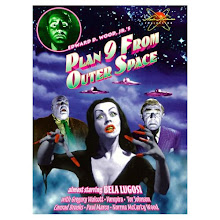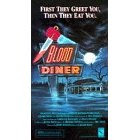by Jason Pyles
“In Bruges” and “The Brothers Bloom” are both comedies about professional, criminal duos. And both films present a pensive, prominent theme of a youthful life not lived. As is typical with this film discussion site, spoilers follow for both films:
Colin Farrell’s Ray character in “In Bruges” accidentally kills a boy during his new line of work as a hitman, and the premature extinguishing of that little life haunts and harrows the killer’s thoughts. A life was senselessly robbed by his being a criminal.
Compare this with how Adrien Brody’s Bloom character in “The Brothers Bloom” complains that his personal identity and existence never were permitted because he was always playing some role in his brother’s schemes. Another life senselessly robbed by the choice to be a criminal.
Comedy is closely linked with tragedy, which seems counter-intuitive, I know, but it’s been that way at least since Shakespeare, probably earlier. Though both films are mostly light-hearted comedies, the sad theme described above amounts to fairly weighty emotional baggage. If you think about the murder of a child or the theft of a childhood for very long, you’ll quickly realize that these are terribly heavy anchors to risk installing on such comedic ships.
But because these risks were taken — and well executed — both films work extremely well as comedies, and are all the better for it. Both movies have enjoyed warm receptions, critically and in the mainstream viewership, but I’d still have to choose sides and say, of the two, “In Bruges” is the better film.
“In Bruges” is ferocious in its descent into increasingly intense violence, which culminates with a pay-off that’s remarkably amusing (despite its darkness), especially considering that it’s tied to the boy’s murder discussed above. What I’m referring to is when the savage but principled Ralph Fiennes character, Harry, admits earlier in the film that if he killed a child, he would immediately turn the gun on himself. Then, at the end of the movie, when he unintentionally kills a dwarf that he thinks was a child, his prior claim is proven with exactness. That’s kind of funny in the moment, yes? But isn’t it bizarre when we recall that this humorous event is actually built upon the tragic incident of a murdered boy? Amazing. The risk is great, and so is the reward.
A side note: I couldn’t help but suspect that the quirky, fast-paced dialogue from “In Bruges” is inspired by Tarantino’s writing.
Now then, I’ve heard many rave reviews of “The Brothers Bloom.” Though I liked it just fine, I don’t think it’s anything overly special. I felt the same about “Brick” (also written and directed by Rian Johnson), but my colleague, Andy, loves that movie. My chief criticism of “The Brothers Bloom” is a nitpicky one that I also have with many con-man and megalomaniac, serial killer movies: The insanely intricate, excessively extravagant plans that were somehow devised and put into action by the con-genius or lunatic always seem to unfold perfectly. I guess this bothers me because anyone who’s ever tried planning a wedding, for instance, knows that no matter how carefully you plan, something always goes awry.
And so, yes, though the cons in “The Brothers Bloom” are entertaining and seem to be brilliant, let’s just remember that they are the epitome of contrivance. And precisely because it’s a con-man movie, we know that there will be tons of twists and turns, especially with the final con. And thus it is.
Oh, and one more complaint: Adrien Brody is an exceptional actor (see “The Village”), but I like him least when he is brooding, as in this film or “King Kong” (2005).
Putting the pettiness aside, “The Brothers Bloom” is quite clever in its misdirection of our attention. It doesn’t cash in as much on the young-life-lost theme as does “In Bruges,” but I guess it doesn’t need to, because Bloom eventually escapes his brother’s life-stealing scripts and gets the girl, too. “In Bruges” resolves said theme by removing “the bad guy” (Fiennes) with it, and “The Brothers Bloom” brings closure to the life-lost theme by restoring the life in question.






























































No comments:
Post a Comment